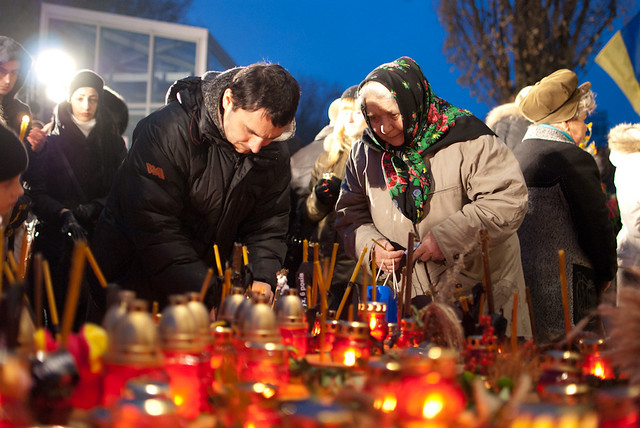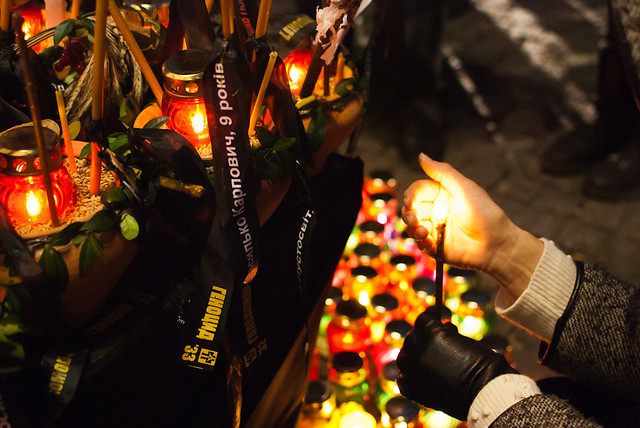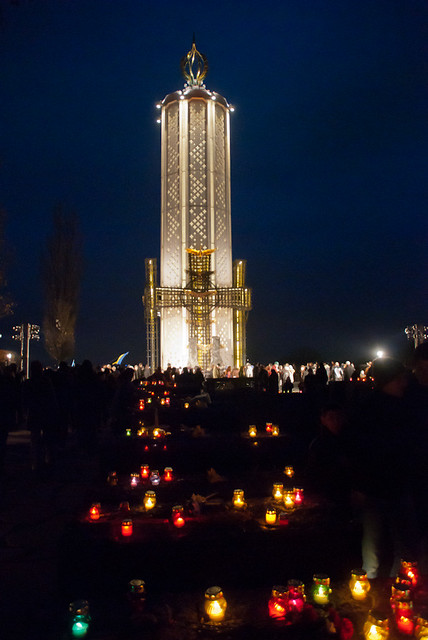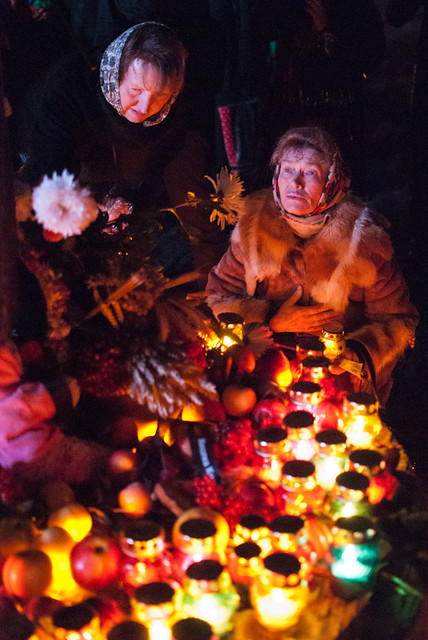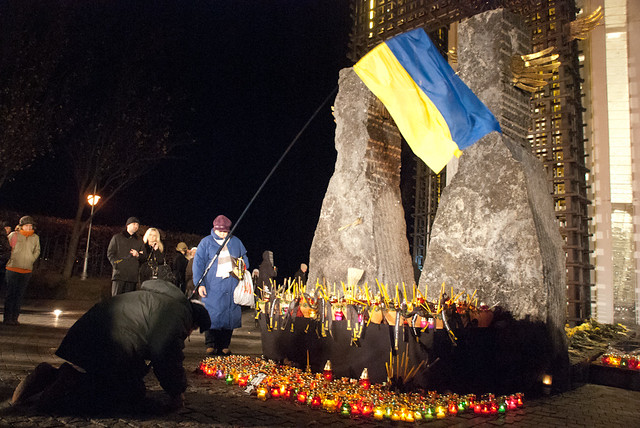My train from Krakow to Kiev clattered through the vast and endless countryside through the night, stopping for an interminable customs stop while Ukrainian authorities sent two separate round of sniffer dogs through our belongings. I had traveled all the way to Ukraine to fulfill a lifelong dream–to see firsthand the abandoned town of Pripyat, deserted after the Chernobyl disaster. A town abandoned in one day, and left virtually untouched in the decades since. National Geographic wasn’t going to cut it. Sadly, the morning I arrived in Kiev, the Ukrainian government halted all tours of the area, effective immediately. (I did manage to get my money back.)
I visited the museum, but it isn’t quite the same.

Newlywed couples place locks on bridges all over Kiev, Ukraine to symbolize their union. Periodically some hapless bastard has to clear them off with a bolt-cutter to make room.
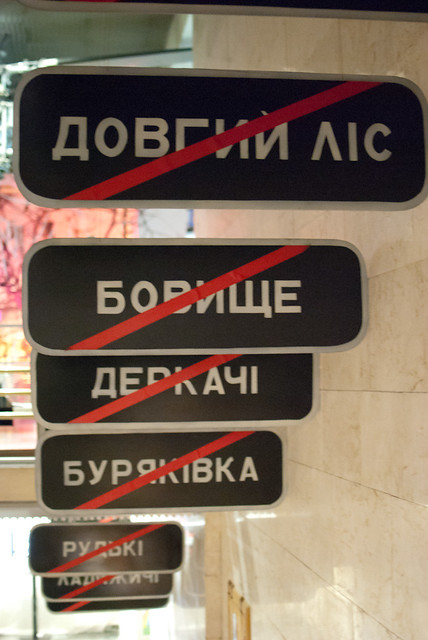
Village signs from the Chernobyl exclusion zone
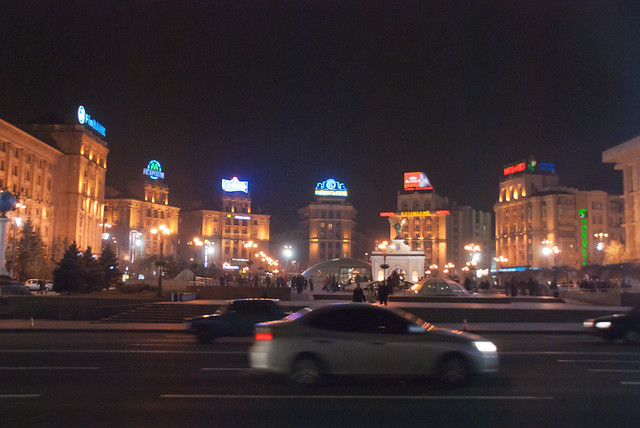
Independence Square, site of the Orange Revolution
In 1932 and 1933, famine struck the Soviet Union. Ukraine was affected far more than the other Soviet republics. As one of the Soviet Union’s breadbaskets, food supplies were taken from Ukraine to provide one third of the entire Union’s supply. The Holodomor, as it is known, killed millions and remains a sensitive spot in Ukrainian history. A candlelight vigil was underway at the memorial when I visited.


